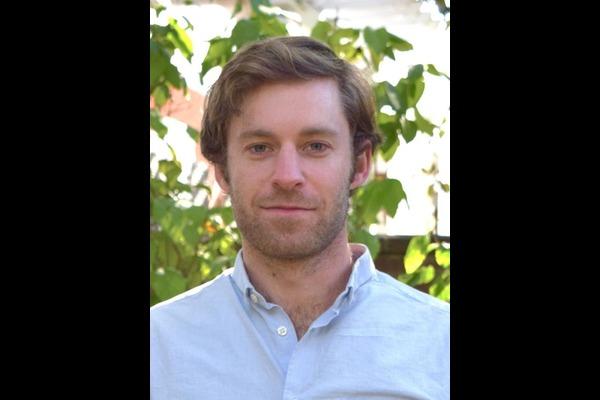STEAM Spotlight- Zachary Hines

Dr. Zach Hines is Assistant Professor in the Department of English, where he specializes in medieval poetry and book history. Zach’s archival scholarship, including an in-progress book about books, investigates how metaphors of materiality (and the materiality of metaphors) emerge in antiquarian and scholarly discourses about medieval manuscripts. The subjects of recent or forthcoming publications include the history of the Sir Gawain and the Green Knight manuscript; the production of William Caxton’s Chronicles of England (1480); the intersections of book history and “Dark Academia”; and a translation of a fifteenth-century neo-Latin oration (co-edited with his sister, Dr. Caitlin Hines). Zach is also co-editing a special issue of English Language Notes on “Metaphors of Compilation.”
- What is one of the most interesting conversations that you have had recently?
As a scholar of Middle English literature and English medieval books, my work focuses rather narrowly on vernacular artifacts produced and consumed in a small corner of the world. Conversations with colleagues in the Society of Fellows in Critical Bibliography (based at Rare Book School at the University of Virginia) have helped me to understand a broader and more comprehensive history of the book, one that begins much earlier than Western narratives and explains how ideas and technologies made their ways across the globe. One of my commitments as a professor is to learn and to teach more inclusive histories of reading and writing, insights which inevitably inform my research on English books.
- What projects are you working on that encourage you to get out in the morning?
My current book project, tentatively titled Edifying Books: Manuscript Culture and the Making of Middle English Literature, offers new ways of thinking about how people used, and continue to use, medieval books. The writing process is always exciting because each chapter offers a case study of a different literary artifact. Each “celebrity” manuscript I discuss preserves a resolutely canonical work in Middle English, texts which provide frameworks for understanding how these books have been shaped and re-constituted by later readers. Edifying Books explains how these material changes to the surfaces of manuscripts have informed institutional and scholarly attitudes about medieval literature. Writing an academic monograph about old books in dead languages can be challenging and sometimes even frustrating, but I find energizing the regular opportunities my research provides to discover and to share new knowledge. That it requires visits to beautiful libraries and encounters with medieval books is an added benefit!
- What questions about your work are you curious about right now?
My current work investigates the relationship between two textual technologies – handwritten books and hand-pressed books – in the last quarter of the fifteenth century. In this moment of technological change, immediately after the introduction of moveable type to England, we can learn about how medieval printers like William Caxton deployed medieval manuscripts in the operations of the printing press. My chapter on Caxton re-envisions England’s first printer as a reader of manuscripts to examine the treatment of vernacular handwritten books during this crucial period.
- What does community mean to you?
Perhaps my favorite thing about being an academic is the opportunities it provides to join in conversation with other curious people. I am always delighted to learn how researchers and teachers in other disciplines approach tricky questions in their fields or address familiar problems in new ways. We talk a lot in the humanities about interdisciplinarity and collaboration, but only rarely is this kind of work actually encouraged or rewarded. An intellectual community like STEAM Factory makes possible and even productive such interactions.
- What are people usually surprised to find out about you?
I came to the study of medieval book history through undergraduate majors both in literary studies and anthropological archeology. Informed by my personal interest in books and libraries, this multidisciplinary training led me to medieval studies, an academic field likewise committed to methodological capaciousness. As a scholar of medieval books, I investigate premodern cultures of reading and writing, from manuscript production and textual transmission to issues of reception and conservation.

